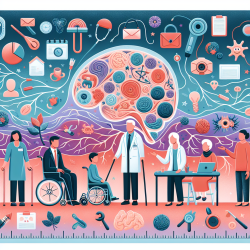The opioid crisis continues to challenge communities across the United States, with overdose deaths reaching unprecedented levels. In response, local health departments (LHDs) have been at the forefront of implementing effective overdose prevention strategies. A recent study titled "Overdose prevention activities led by local public health departments, 2019–2023" provides valuable insights into these efforts and highlights areas where practitioners can improve their skills.
The Role of Local Health Departments
LHDs have been pivotal in coordinating multi-sector collaborations to address the overdose epidemic. Their efforts have primarily focused on community and individual levels, with activities centered around coordination, collaboration, integration, harm reduction, and data-driven approaches.
Key Strategies Implemented
- Coordination and Collaboration: LHDs have successfully linked individuals who have experienced nonfatal overdoses to care through emergency services and post-overdose response programs.
- Harm Reduction: Activities such as distributing naloxone and fentanyl test strips have been crucial in reducing overdose risks. Innovative approaches like public health vending machines have also been introduced.
- Data and Evidence: Enhanced surveillance activities have helped identify overdose hotspots and inform resource distribution and public alerts.
- Reducing Stigma: Media campaigns aimed at dispelling myths about substance use disorders have been implemented to foster a more supportive environment for those affected.
Opportunities for Practitioners
The study identifies gaps in current strategies that practitioners can address to enhance their practice:
- Treatment and Health Equity: More interventions are needed at relationship and policy levels to ensure equitable access to evidence-based treatment.
- Diverse Community Engagement: Tailored programs for subpopulations disproportionately affected by overdose can improve outcomes.
- Policy Advocacy: Engaging with policymakers to implement evidence-based policies can strengthen local responses.
LHDs' ability to work at both community and individual levels is a significant strength. However, expanding efforts to include relationship-level interventions—such as supporting families and friends of those at risk—can further enhance recovery capital for people who use drugs (PWUD).
The Path Forward
The findings from this study offer a roadmap for enhancing overdose prevention efforts. By focusing on comprehensive strategies that include harm reduction, stigma reduction, and data-driven approaches, practitioners can play a crucial role in combating the opioid crisis. Additionally, exploring opportunities for further research can provide new insights into effective interventions.
If you're interested in delving deeper into the research behind these findings, you can read the original research paper by following this link: Overdose prevention activities led by local public health departments, 2019–2023.










